Feature: Valerie Jencks Was Diagnosed with Thyroid Cancer in 2019, Contracted COVID-19 in 2020, and Still Has Her Eyes Set on the Chicago Marathon in 2021
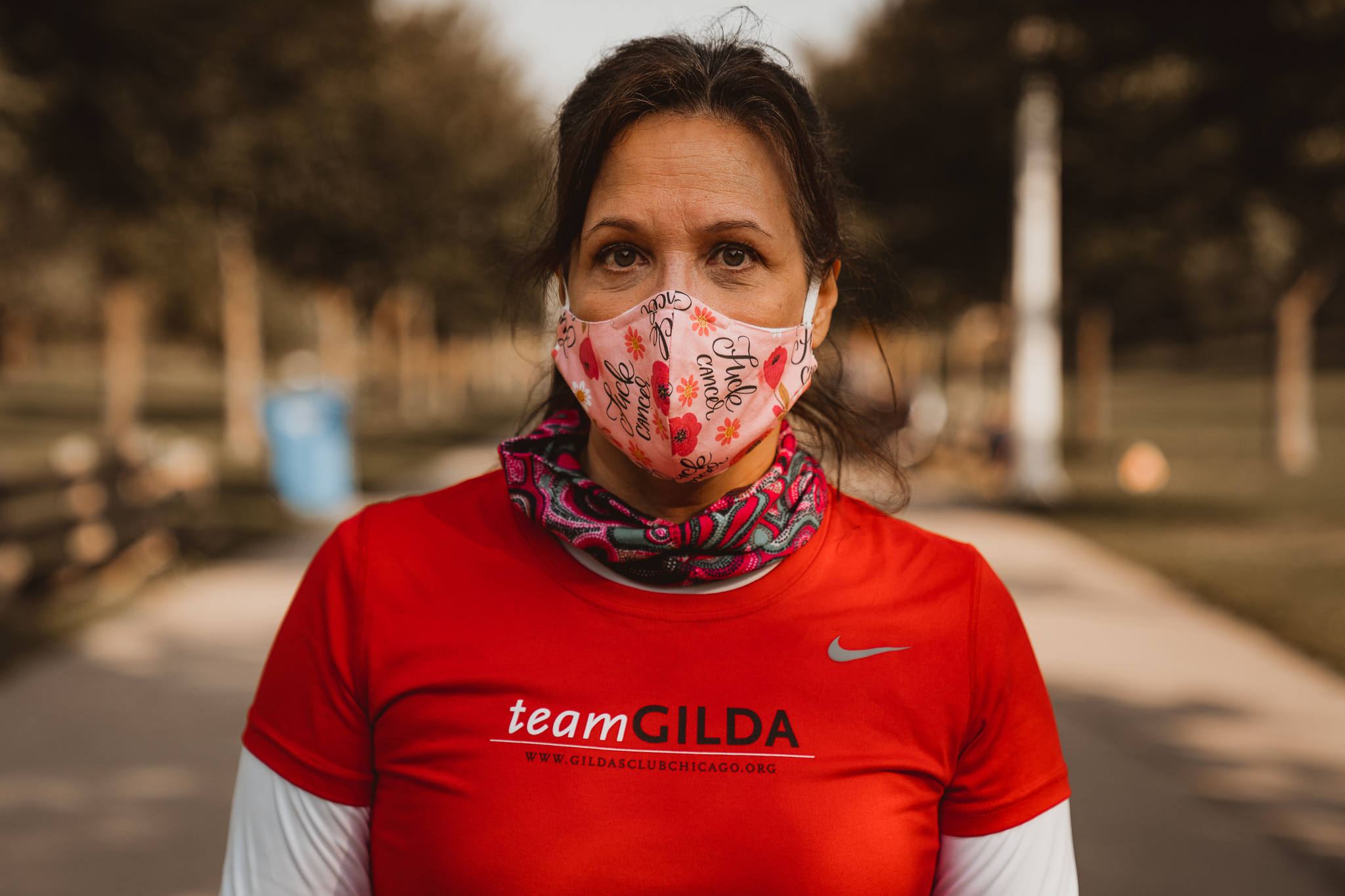
| DONATE | LEARN MORE |
F*ck cancer.
In 2019, Valerie was diagnosed with thyroid cancer. In 2020 Valerie was supposed to run her first marathon with Gilda's Club Chicago. In March she contracted COVID-19. In 2021, Valerie is determined to run the Bank of America Chicago Marathon.
Despite everything life has thrown at her the past two years, Valerie is optimistic. And it showed during the short time we spent talking to her. Valerie's involvement with Gilda's Club Chicago provides her a place to connect with others who's jobs have suddenly become dealing with cancer. This support network has her hopeful for future running plans and gave her a new outlook on life itself.
Gilda's Club Chicago offers programs and support groups for the entire family to learn to live with cancer and is Fleet Feet Chicago’s charity of the month for October in addition to being the recipient of donations coming from Mizuno's projectZERO campaign, a collection of shoes and apparel and an initiative to raise awareness and funds to eliminate breast cancer. Our charity of the month program highlights one local Chicago charity throughout all of our retail stores and marketing efforts. In 2019, the program raised over $11,000 in in-store donations.
Learn more and consider donating to one of our charities of the month by talking to one of our Outfitters at the register and read our interview with Valerie below.
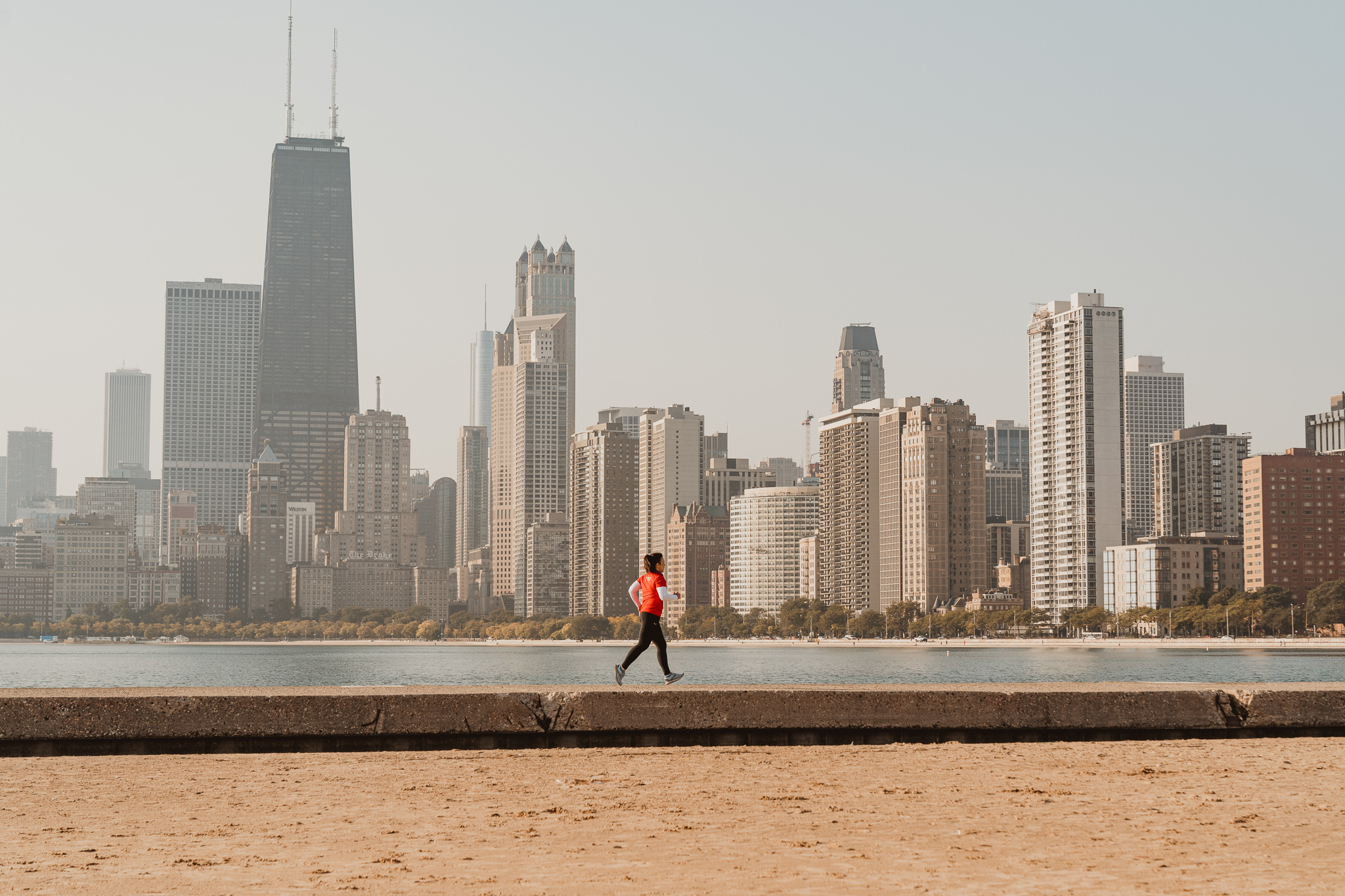
When were you diagnosed with cancer?
I was commuting from Downers Grove into the city and I tripped and fell at Union Station getting off the train and knocked myself out and when they did a CT scan of my head and neck to see if I broke anything, they found a growth in my neck. That's how they found the cancer. It's a fortunate, unfortunate story. That was in February of 2019. I had a neck dissection in July and had the cancer removed. At that point I wasn't able to talk well. I didn't have any energy and started to get depressed.
How did you get involved with Gilda’s Club Chicago?
As a family therapist, I spoke at Gilda’s Club Chicago years ago about children and grief, and also being a comedian and thought that Gilda’s Club Chicago, as it was founded in honor of the great comedian Gilda Radner, was a good place for me to get the support that I needed when I was going through cancer.
What type of cancer were you diagnosed with?
Thyroid cancer.
Did you have a support network internally or externally?
I did. My family was very supportive. What was challenging about thyroid cancer is that everybody says, “oh, that's a good cancer because it tends to be slow-growing and it tends to be contained." But what I learned is that it is the most commonly diagnosed cancer among women. There's a 60% increase in women with thyroid cancer in the last five years.
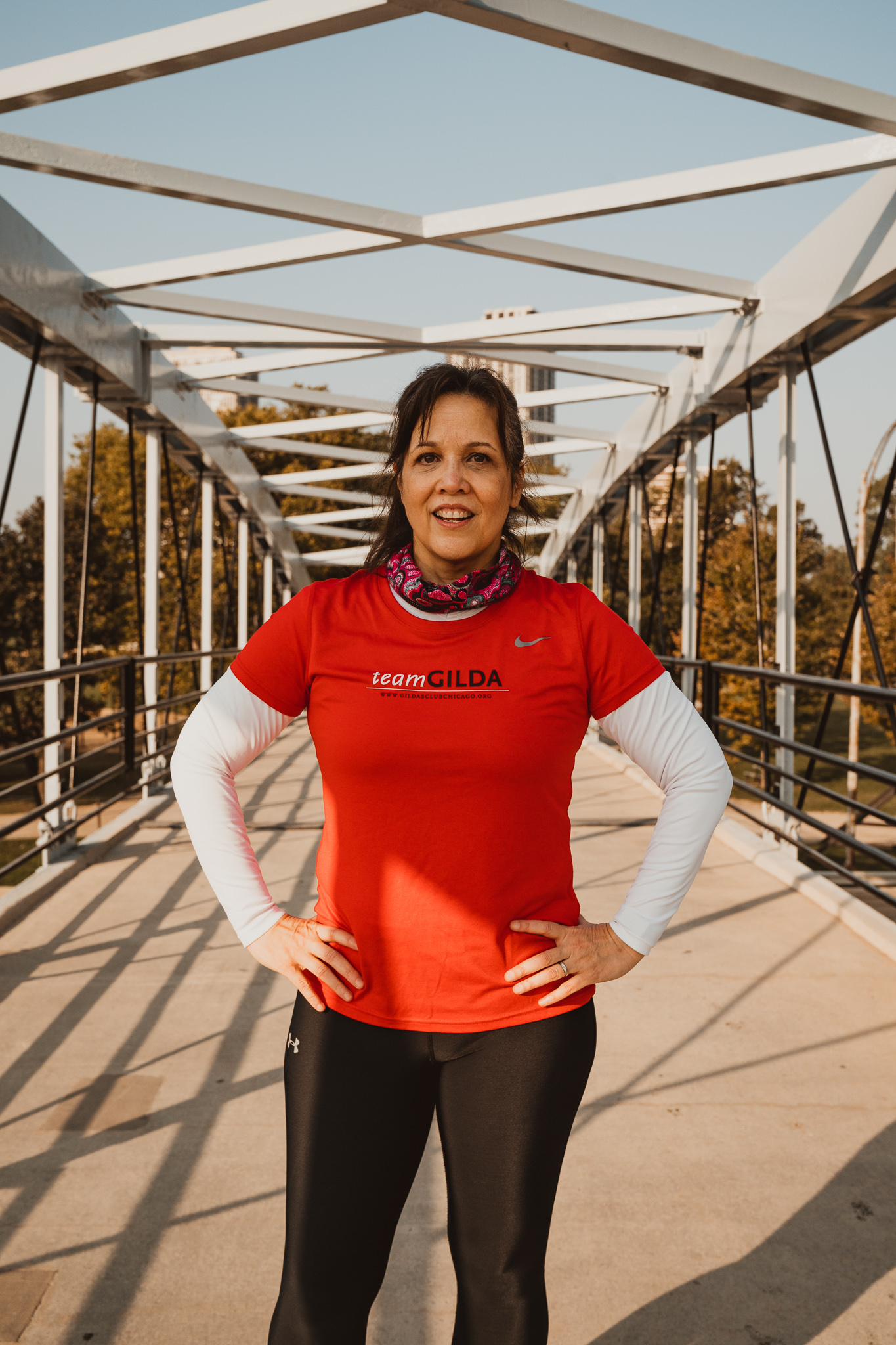
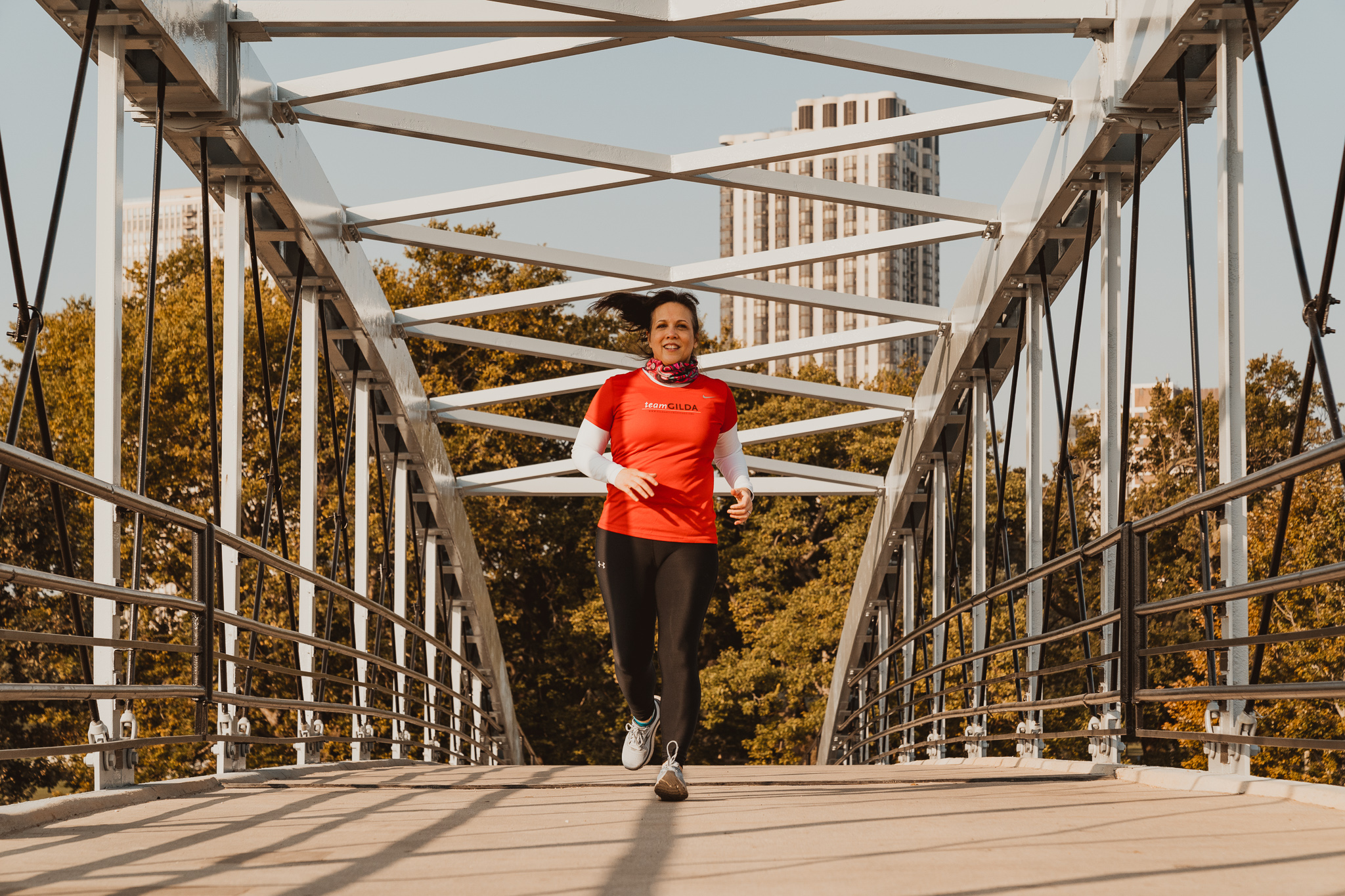
| DONATE | LEARN MORE |
When did you get involved with Gilda’s Club Chicago?
I joined Gilda’s Club Chicago shortly before my surgery when they were offering a workshop on advanced directives. When you get diagnosed with cancer, you get catapulted into having to deal with issues of your own mortality. Even though I wasn't thinking that anything was going to happen, it's still forced me into having to deal with, you know, not just who gets my stuff, but how do I want to be taken care of if things don't go well. I found quite a bit of support and resources from Gilda’s Club Chicago, I got involved with a cancer support group that I still participate in weekly to this day. I also taught a stand-up comedy class in the winter where everybody wrote jokes about their cancer journey and then performed it.
How did Gilda’s Club Chicago help?
Cancer is like a great equalizer. It doesn't matter what your socioeconomic status is. It doesn't matter what your religious or ethnic background is. Cancer is cancer. We all get shoved into dealing with our own mortality. The challenge of how your life shifts to be all focused on healthcare and yourself is a lot different.
Your day-to-day routine all of a sudden becomes dealing with the cancer and that can be really isolating and disorienting. Gilda’s really provides a place for people to connect. It provides a community of people who are struggling with the same things. I hear over and over from people at Gilda’s Club, that cancer changes you. And it really does, but it's hard to understand. If you haven't been through it.
Unfortunately, just to stay positive and get through it, it almost forces you to be selfish in a way, but you can't feel bad about being selfish in needing to take care of yourself. You just struck a chord for me, one of the things that happen when you get cancer is you don't want the people that you love to worry about you and so you tend to hide what's going on from them. You hide the fear, you hide the sadness, you hide the anger because you recognize that the people who love and care about you are also scared and going through their own stuff. An organization like Gilda’s provides a safe place for people to be able to feel free, to dive into those emotions without feeling like they have to take care of other people. This is especially true for women. I think I'm going to be a little sexist here, but I think women have a tendency to be those caretakers. We keep everything all bottled up inside so that our kids don't worry about us so that our spouses don't worry about us and our parents and our friends don't worry about us.
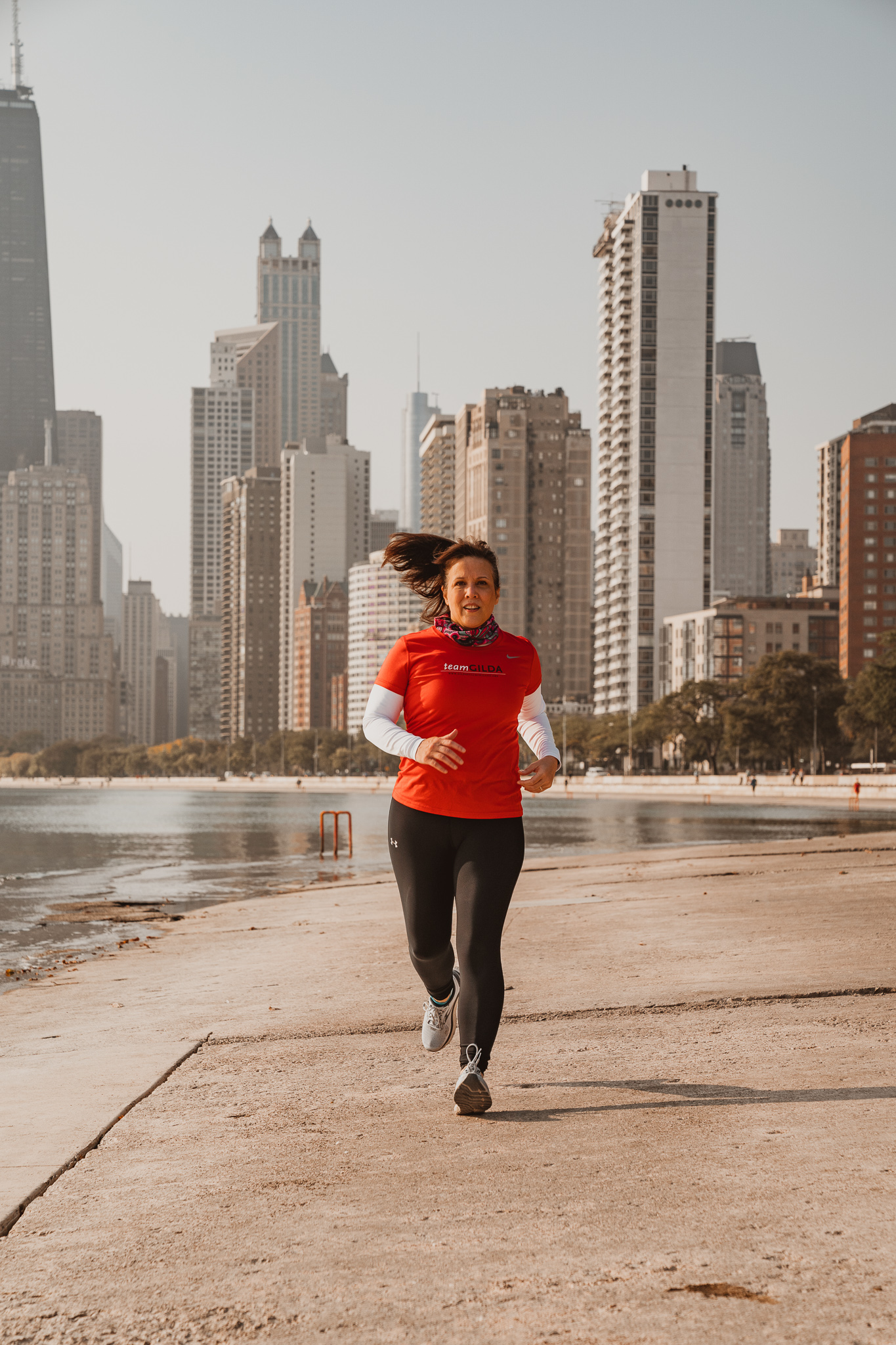
| DONATE | LEARN MORE |
What has been the hardest part?
You know, the hardest thing about this journey for me was telling my mom and dad and my children that I had cancer. And at Gilda’s I found a community of women that understood that because they were going through the exact same thing.
2020 was going to be your first marathon and running with Gilda’s Club. How have those plans changed?
Running has always been my go-to for dealing with stress. My first 5K was a breast cancer charity run in 2001 when I was dealing with a divorce. As I started to recover from cancer last year, I joined the Gilda's run club to train for the Bucktown 5K last fall. When I successfully ran it, I decided, “you know what, Gilda’s has given me so much in the last year. I really want to give back.” So, I signed up to run the marathon for Team Gilda. I was training throughout the winter with Gilda’s Run Club. We were on the lakefront running in freezing temperatures and it was just very healing to be with other runners who were going through a similar journey. Well, then, I got sick and diagnosed with COVID in March and my training stopped. Months later, as we know, the marathon was canceled.
Has it been difficult to run since contracting COVID-19?
I was lucky to be able to train and get back and do a 5K. Not my best time, but, you know, I did the 5K and I thought there's no reason why I can't do a marathon. Then I got COVID and I have not been able to get back to running. I'm considered to be, what's called a “long hauler” which means that I didn't fully recover. We have lingering symptoms. My pulse rate and my ability to oxygenate my muscles aren't working properly. But I keep trying to run. The cure for many long haulers appears to be to not exercise. When you're used to having running as being your source of stress relief and getting out of the house, because your husband's driving you nuts, or you're driving your husband nuts, and you can't do that anymore. It’s really challenging. So, yeah, I'm looking forward to running the marathon in 2021.
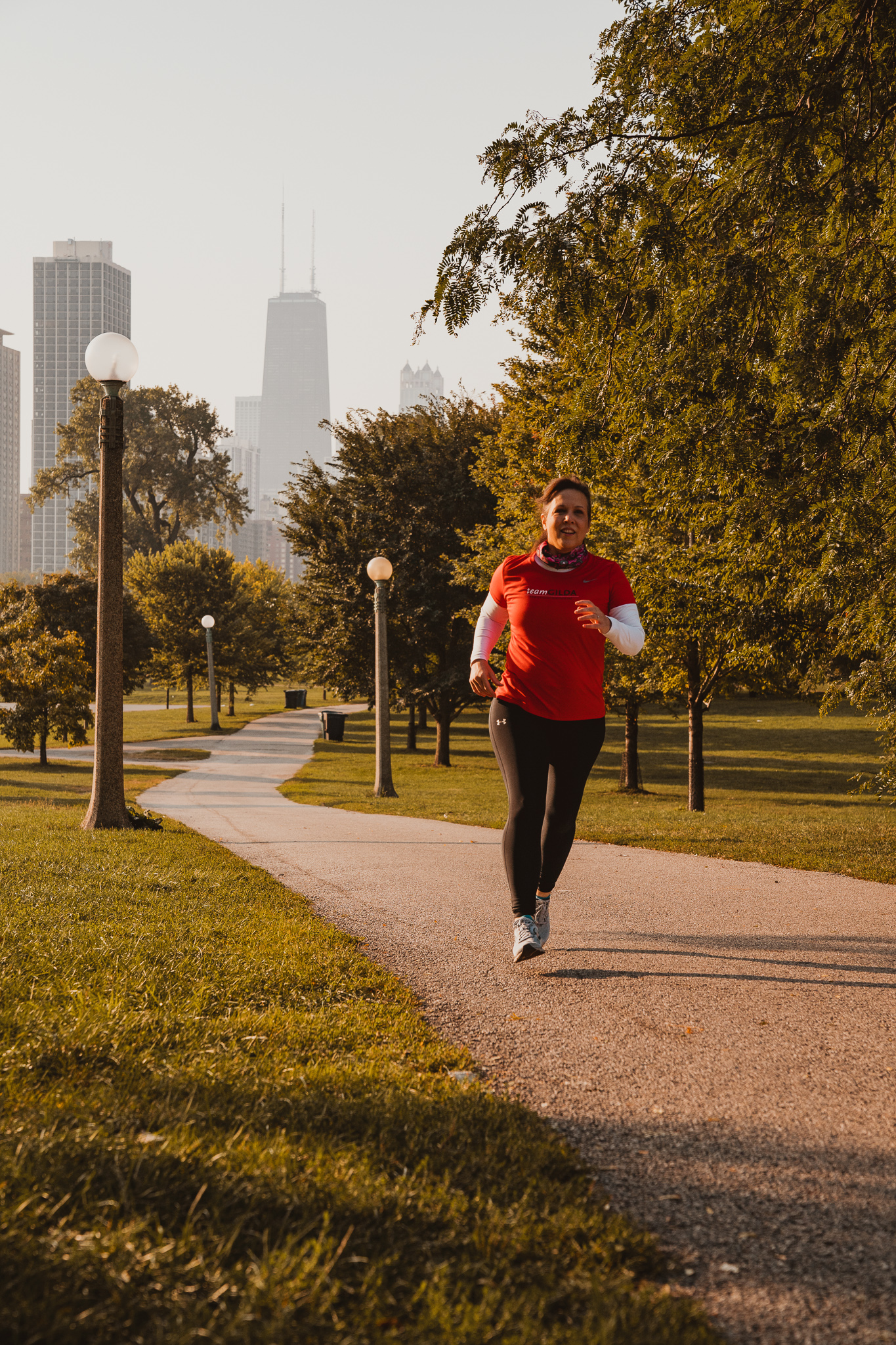
How has being in cancer treatment affected your training?
For me, I actually did not have chemo or radiation, so I was one of the lucky ones, but I did have a neck dissection and removal of my thyroid. So my body has had to learn how to function without those things. It's definitely slowed me down. I had to literally start over. I was running five miles a day, 25 to 30 miles a week in January, and COVID has made it so that I'm back to square one. And that's frustrating.
Since your diagnosis, how has your outlook on life changed?
When I was diagnosed, I started to do an exercise called Three Good Things. It's a gratitude exercise based in positive psychology. Every day I list three things that I'm grateful for and why, as a way of reminding myself of the positive things that are going on in my life. It’s interesting because some days that will be the fact that I was able to run or walk and other days it will be that I woke up. I've also been a lot more selective with how I spend my time.
What would you tell a person who just yesterday learned of their diagnosis?
I would say find a community like Gilda’s Club and get involved. You can't (and shouldn't) do this alone.
How can someone support Gilda’s Club Chicago?
Definitely, obviously money. You know with the pandemic. I think a lot of not-for-profit organizations are suffering because their large galas, their fundraiser events are not able to happen.
One of the things that I think is important that people know is that Gilda’s Club, within weeks of the shutdown successfully pivoted to have everything online, including their wellness groups, yoga, and meditation classes. All of their workshops and resources. There are weekly wellness support groups for people that have continued throughout the shutdown and because of that, Gilda’s has actually been able to engage a lot more people with their services than they did without this virtual presence. So they're actually doing more work right now while receiving fewer resources and monetary support.
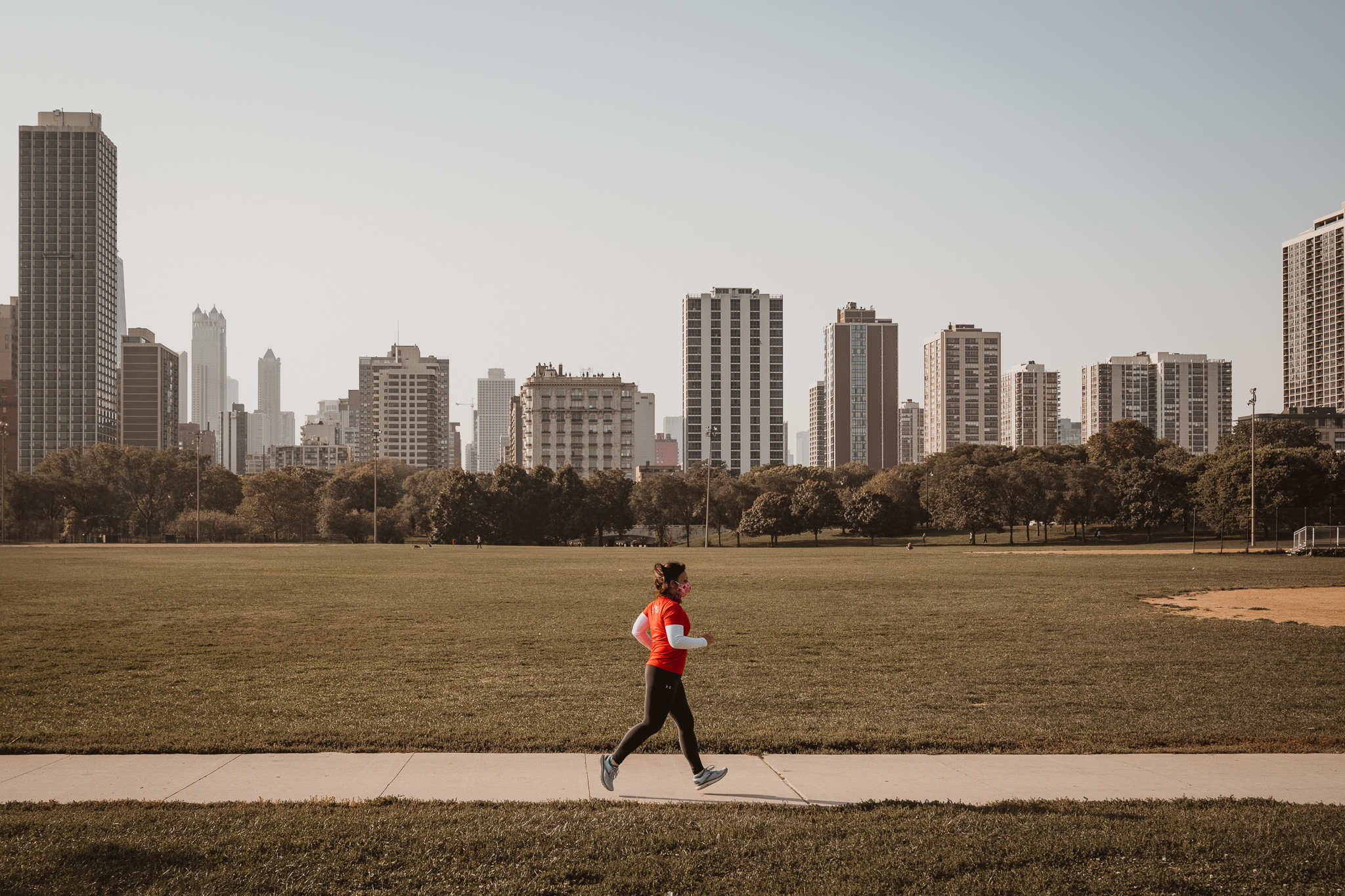
Connect With Us
see the latest from Fleet Feet Chicago